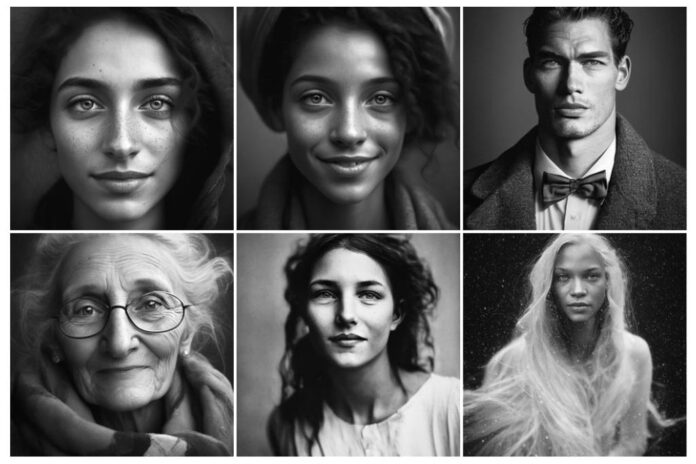As the followers of Joe Avery’s Instagram account continued to increase so did his guilt.
His @averyseasonart account largely features black-and-white portraits of sharp facial features and blurred backgrounds. Oftentimes, Avery provided the subject’s name and a cutesy anecdote about their life, such as Lucy, “a strong woman from the Bronx,” or Jared, a Boston photographer,
The problem, one Avery struggled to disclose to his 28,000 followers, was that he was creating the images using Midjourney, an A.I. image generator. Avery made the images by entering a text prompt into Midjourney and then fine-tuning them using Photoshop.
Avery describes the work as “A.I-generated, human-finished portraits” and though the process of imitating photorealism is doubtless laborious, among the myriad hashtags that accompanied each image, not one mentioned A.I. art or generative art. A further issue stemmed from Avery having previously denied that the images were A.I.-generated and were, in fact, taken on a Nikon D810.
The popularity of the images, which he began posting on Instagram in October 2022, had wildly exceeded his expectations, creating an uneasiness that led him to contact Ars Technica, a technology publication. “Probably 95 percent-plus of the followers don’t realize [the images are A.I.-generated],” he told Ars Technica, “I’d like to come clean.”
The online response was varied with some criticizing Avery’s dishonesty and others acknowledging the quality of the work.
“Don’t call yourself a photographer, or an artist. All you’ve done is stolen from actual artists,” Ron Drynan wrote on Instagram, “You’re a prompter that finally grew some semblance of a conscience, nothing more.”
“It is A.I.-made portrait but yes it’s great,” read another response on Instagram.
The story is the latest beat in the ongoing furor surrounding A.I. image generators and their impact on creative professionals. In 2022, platforms such as Lensa A.I., DALL-E 2, and Nightcafe gained rapid popularity due to the ease and affordability with which users could create high-quality images. Artist pushback is largely based on the fact these image generators are built by scraping millions of online artworks without consent or compensation.
Avery did not respond to a request for comment.

























